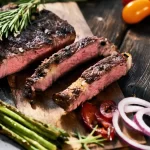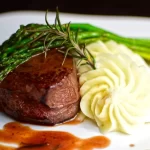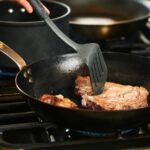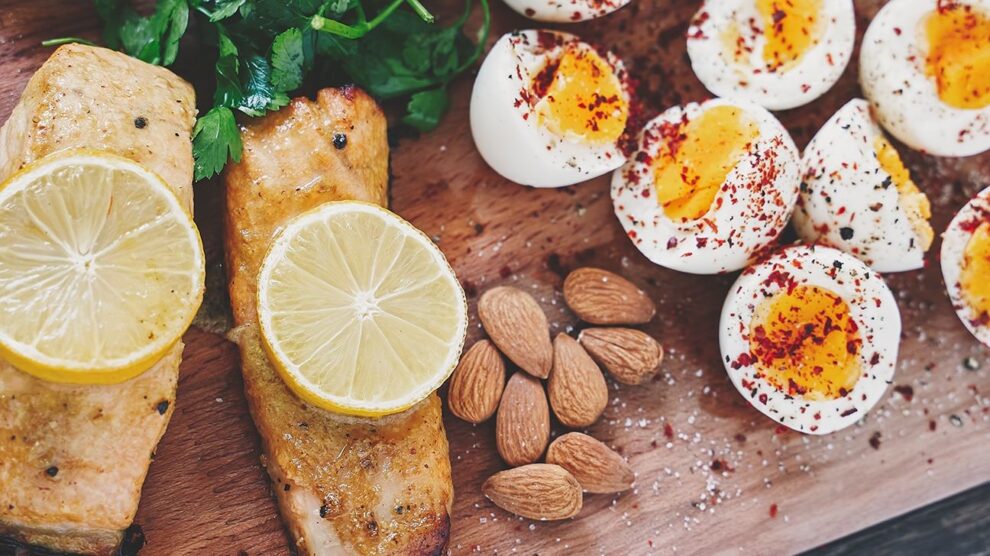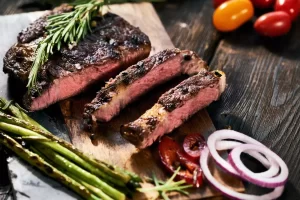Eating this way may result in short-term weight loss, but there are no significant long-term benefits and there may be some risks.
Carbohydrates, protein, and fat, which are known as macronutrients, are all energy sources for your body. All foods provide some combination of these nutrients.
Many foods include more than one macronutrient. For example, nuts contain both fat and protein, and cow’s milk is a source of protein, fat, and carbohydrates.
How and what you eat is a personal decision. Many factors can influence the foods you eat. Cost, availability, preferences, and any health conditions you have will all contribute to your food choices.
You’ve likely heard some hype about a high protein, low carbohydrate diet. People might eat this way if they’re trying to manage their blood sugar levels, lose weight, or build muscle mass.
But for most people, eating a variety of foods is best. This helps ensure that you can enjoy food without feeling restricted and that you’re fueling your body with all the nutrients you need to thrive.
Is it OK to eat foods high in protein and low carb?
As part of a balanced diet, you’ll likely eat many foods that are high in protein and low in carbohydrates. That’s fine. If you follow a high protein, low carb diet, it means you’ll eat more protein and avoid or limit carbohydrates.
There are multiple definitions of a low carbohydrate diet. If you’re following a specific diet plan, you may be counting your carbohydrates to stay below a certain target. A very low carbohydrate diet may limit carbohydrates to 20–50 grams (g)Trusted Source per day.
When eating a very low carbohydrate diet, you would likely avoid or limit high carbohydrate foods such as:
- grains and starches, including pasta, rice, bread, cereal, barley, and oats
- foods with added sugar
- milk and yogurt
- many fruits
- beans and lentils
- starchy vegetables, including corn, squash, potatoes, and sweet potatoes
On a low carb diet, which allows up to 130 g of carbs per day, many of the above foods are OK and can fit into the diet in smaller portion sizes. But these foods would be off-limits on very low carb plans of 20–50 g per day.
Are eggs low carb and high protein?
Yes, eggs are low in carbohydrates and are a source of protein. The average large chicken egg contains nearly 6 gTrusted Source of protein.
Many people find eggs easy to cook, versatile, and filling. If you like eggs, feel free to enjoy them with meals or snacks.
Benefits of high protein, low carb eating
Increasing the amount of protein in your diet can be helpful for many reasons. You can benefit from eating enough protein even if you don’t purposefully avoid carbohydrates.
Your body needs protein to support immune function, build and repair muscles, and maintain all your organs and tissues.
Eating sources of protein with your meals and snacks can also help you feel full longer.
In the short term, a low carbohydrate diet might help manage type 2 diabetes.
The authors of a 2021 research reviewTrusted Source found that people with type 2 diabetes had improved blood sugar levels within the first 6 months on a low carbohydrate diet. But after the 6-month mark, the risks began to outweigh the benefits. People experienced increases in LDL (“bad”) cholesterol and worsening quality of life.
Are there risks from low carb, high protein foods?
There are a few possible risks to following a high protein, low carbohydrate diet. As with any diet plan for weight loss, the results are usually not sustainable. Dieting for weight loss is one of the biggest predictorsTrusted Source of future weight gain.
Dieting may also increase the risk of developing an eating disorder.
If you’ve dieted before, you might have noticed some of the emotional effects. Being on a restrictive diet can make it harder to socialize and cause more isolation. It may also affect your mood and energy level if you’re not eating enough.
Additionally, following a low carbohydrate diet might make it harder to get enough fiber. Fiber is a type of carbohydrate that’s important to support healthy digestion. You might find that you experience more constipation when you cut down your carbohydrate intake.
While the results are not conclusive, some researchTrusted Source has shown an increased risk of death both in people who follow low carb diets and in those with high carbohydrate intake.
If you have a history of kidney disease, a high protein diet might be hard on your kidneys. ResearchTrusted Source suggests that high protein diets can further reduce kidney function.
Should you eat more protein than carbs to lose weight?
This approach may result in weight loss in the short term, but it’s not a sustainable option for most people. Studies have shown that people who follow a high protein, low carbohydrate diet often lose more weightTrusted Source than those who follow a low fat diet.
But keep in mind that these studies look at only short-term results. The reality is that nearly everyone who loses weight will regain it. Research suggests that up to 80%Trusted Source of people who lose weight will regain it.
Food examples
Here are some foods that are low in carbohydrates and high in protein:
- nuts and seeds
- peanut butter and other nut butters
- fish and seafood
- chicken, turkey, beef, and pork
- eggs
- cheese and plain yogurt
- tofu
You might include other foods, such as the following, even though they are not significant sources of protein:
- non-starchy vegetables such as bok choy, broccoli, cauliflower, leafy greens, cucumbers, peppers, tomatoes, mushrooms, asparagus, green beans, celery, and zucchini
- avocado, olives, and small servings of berries
To turn these foods into meals, you might consider including them in the following dishes:
- an omelet made with cheese and vegetables, served with turkey bacon
- roasted pork with broccoli
- a tofu stir-fry (made with a low sugar sauce) with a variety of vegetables
- lettuce taco wraps
- steak with a side of roasted cauliflower
- beef stew, made without potatoes
- a green salad topped with cheese, nuts, and grilled chicken
Takeaway
All foods contain some combination of carbohydrate, protein, and fat. These nutrients give your body energy. Some people choose to follow a high protein, low carbohydrate diet.
While this way of eating may result in short-term weight loss, it’s not usually sustainable. There’s no evidence that this approach will keep weight off in the long term.
There’s nothing wrong with choosing to eat more sources of protein to ensure that you’re getting enough, especially if you find that it helps with your appetite and energy.
For some people, eating a high protein, low carbohydrate diet comes with risks, including kidney damage and an increase in bad cholesterol levels.
Source : Health Line



